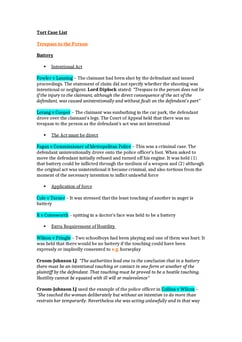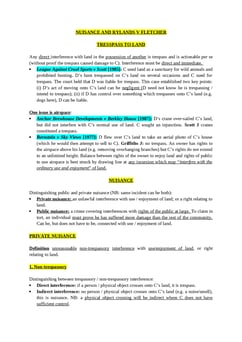Rose v Plenty [1976] 1 WLR 141
Judgement for the case Rose v Plenty
KEY POINTS
The concept of public policy underpins the doctrine of vicarious liability. An employer is made vicariously liable for his employee's tort not because the plaintiff is an invitee or because the servant has authority, but because it is an instance in which the employer, being the one who set things into motion, should be liable if the motion that he set, causes damage to another.
Even if the employer prohibits a particular conduct, he can still be held accountable for it, if the activity was performed with the goal of benefiting the employer. However, if the employer does not gain from the behavior, the employer may not be held accountable.
FACTS
The defendant worked as a milk roundsman in Bristol and began working on Easter in 1970. There were boards up at the depot stating unequivocally that roundsmen were not permitted to transport children on vehicles, nor were they permitted to employ children in the performance of their tasks.
Despite all of these warnings, the practice continued. Boys used to gather around the depot, and certain roundsmen would bring them along to help with their work.
Soon after the defendant began working as a milk roundsman, the plaintiff, a youngster of about 13 years old, approached the defendant and asked if he might assist him. The plaintiff would leap off the milk float, grab the milk, deliver it to the residences, collect money, and return the bottles. He was paid 6/- on weekends and 4/- on weekdays by the defendant.
One day, while the plaintiff was riding on the milk float and the defendant was driving it, an accident occurred due to the defendant's negligent driving. The plaintiff sat on the float with one foot dangling down to leap off swiftly, and the wheel caught on his leg, resulting in a fracture.
The father of the plaintiff filed a lawsuit for damages against the defendant and his employers. The issue presented here was whether the employers were responsible for the act of the defendant.
COMMENTARY
The employer was found to be liable. The court found the employer vicariously liable because the prohibition did not impact the work or tasks that the milkman was obligated to execute, but rather only the manner in which he should perform them. He was doing his job, although, in an unfavorable manner, that was disapproved by his employer.
To put it another way, the milkman was acting in the course of his employment when he recruited the plaintiff to assist him in delivering milk since that was his duty or job, and hiring the boy allowed him to fulfill that task.
The Court determined that the employee was carrying out his duty, but in a way that the employer had directed him not to. Despite this, he was operating within the scope of his duty/job, because the work he was carrying out benefited the employer's business
ORIGINAL ANALYSIS
Defendant was a milkman employed by X. X told him he was not allowed to employ children to help out with milk-rounds.
Defendant employed Plaintiff, a child, and Defendant’s negligence caused Plaintiff injury.
CA held that X was liable for Defendant’s negligence.
Lord Denning (majority)
Notices such as orders to refrain form an activity do not exempt the employer from vicarious liability if the activity was carried out for the master’s purposes rather than for the servant’s.
Denning says that if an act is done for “the employer’s business”, regardless of prohibitions, then it is “usually done in the course of business”.
Here, the conduct was within the course of employment (the purpose was delivery of milk) and so X was vicariously liable.
Lawton LJ (dissenting)
Defendant was NOT acting in X’s interests: It was Defendant who was paid to do the work and it was not in X’s interest that he should subcontract the work to the boy. Thus he was outside the scope of his employment.
Also it was not in X’s interest that Defendant should act against X’s express wishes and cause Plaintiff injury.
For Further Study on Rose v Plenty

A collection of the best GDL notes the director of Oxbridge Notes (an O...
Need instant answers? Our AI exam tutor is here to help.
Ask questions 🙋 Get answers 📔 It's simple 👁️👄👁️
Our AI is educated by the highest scoring students across all subjects and schools. Join hundreds of your peers today.
Get StartedSimilar Cases
Related Product Samples
These product samples contain the same concepts we cover in this case.
| GDL Tort Law | Employer's Liability Notes (10 pages) |
| Tort Law | Vicarious Liability Notes (17 pages) |

 Since 2010, Oxbridge Notes has been a trusted education marketplace, supplying high-quality materials from top achievers at universities like Oxford, Cambridge, LSE, Harvard, and Yale.
Since 2010, Oxbridge Notes has been a trusted education marketplace, supplying high-quality materials from top achievers at universities like Oxford, Cambridge, LSE, Harvard, and Yale.